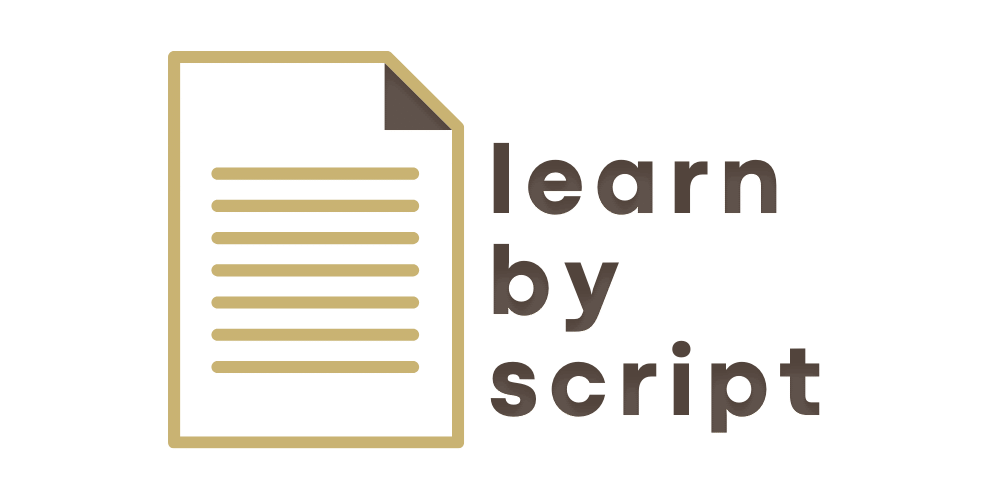Product management interviews are a crucial step in the hiring process for aspiring product managers. These interviews are designed to assess a candidate’s skills, knowledge, and experience in order to determine their suitability for the role. They typically involve a combination of behavioral, technical, and case study questions that require candidates to think critically and demonstrate their problem-solving abilities.
Preparing for product management interviews is essential for success. The competition for product management roles can be fierce, and candidates need to stand out from the crowd. By thoroughly researching the company, understanding the role of a product manager, and practicing responses to common interview questions, candidates can increase their chances of impressing the hiring team and securing the job.
Key Takeaways
- Product management interviews are a crucial step in the hiring process for product managers.
- Product managers are responsible for the strategy, development, and success of a product.
- Preparing for a product manager interview involves researching the company, practicing common interview questions, and understanding the role.
- Top 10 product manager interview questions include questions about product strategy, user research, and project management.
- Behavioral, technical, and case study interview questions are also common in product manager interviews.
Understanding the Role of a Product Manager
Before diving into the interview preparation process, it is important to have a clear understanding of what a product manager does. Product managers are responsible for overseeing the development and launch of new products or features. They work closely with cross-functional teams, including engineering, design, marketing, and sales, to ensure that products meet customer needs and business objectives.
The duties of a product manager can vary depending on the company and industry. However, some common responsibilities include conducting market research, defining product strategy, creating product roadmaps, prioritizing features, and collaborating with stakeholders. It is crucial for candidates to have a solid understanding of these responsibilities and be able to articulate how their skills and experience align with the role.
Furthermore, candidates should also familiarize themselves with the company’s product and industry. This knowledge will not only help them answer interview questions more effectively but also demonstrate their genuine interest in the company and their ability to contribute to its success.
Preparing for a Product Manager Interview
Preparing for a product manager interview involves several key steps. The first step is researching the company and its products. Candidates should familiarize themselves with the company’s mission, values, target market, competitors, and any recent news or developments. This information will not only help them answer interview questions but also enable them to ask thoughtful questions during the interview, demonstrating their genuine interest in the company.
Next, candidates should carefully review the job description and requirements. They should identify the key skills and qualifications that the company is looking for and think about how their own experiences align with these requirements. This will help them tailor their responses during the interview and highlight their relevant skills and achievements.
Finally, candidates should practice responding to common interview questions. They should think about their past experiences and accomplishments and be prepared to provide specific examples that demonstrate their skills and abilities. It can be helpful to write down potential answers and practice delivering them aloud or with a friend or mentor. This will help candidates feel more confident and articulate during the actual interview.
Top 10 Product Manager Interview Questions and Answers
| Question | Answer |
|---|---|
| What experience do you have in product management? | Provide specific examples of your experience in product management, including your role in the product development process, your experience with market research and analysis, and your experience with product launches and marketing campaigns. |
| How do you prioritize features and requirements? | Explain your process for prioritizing features and requirements, including how you gather input from stakeholders, how you evaluate the potential impact of each feature, and how you balance competing priorities. |
| How do you measure the success of a product? | Describe the metrics you use to measure the success of a product, including how you define success, how you track and analyze data, and how you use that data to inform future product decisions. |
| How do you work with cross-functional teams? | Explain your approach to working with cross-functional teams, including how you communicate with team members, how you manage conflicts, and how you ensure that everyone is aligned and working towards the same goals. |
| How do you stay up-to-date with industry trends and developments? | Describe your process for staying informed about industry trends and developments, including how you research and analyze market data, how you attend industry events and conferences, and how you network with other professionals in your field. |
| How do you handle difficult stakeholders? | Explain your approach to managing difficult stakeholders, including how you identify and address their concerns, how you build relationships with them, and how you ensure that their needs are being met while still achieving your product goals. |
| How do you prioritize user feedback? | Describe your process for prioritizing user feedback, including how you gather and analyze feedback, how you evaluate the potential impact of each piece of feedback, and how you balance user needs with business goals. |
| How do you handle product failures? | Explain your approach to handling product failures, including how you identify and address the root cause of the failure, how you communicate with stakeholders, and how you use the failure as an opportunity to learn and improve. |
| How do you manage product roadmaps? | Describe your process for managing product roadmaps, including how you prioritize features and requirements, how you communicate the roadmap to stakeholders, and how you adjust the roadmap based on changing business needs. |
| How do you balance short-term and long-term product goals? | Explain your approach to balancing short-term and long-term product goals, including how you prioritize features and requirements, how you evaluate the potential impact of each goal, and how you ensure that both short-term and long-term goals are aligned with overall business objectives. |
Product manager interviews often include a set of common questions that are designed to assess a candidate’s knowledge, skills, and experience. Here are ten examples of such questions and tips on how to answer them effectively:
1. “Tell me about a time when you had to make a difficult decision as a product manager.”
When answering this question, it is important to provide a specific example from your past experience. Describe the situation, the decision you had to make, the factors you considered, and the outcome of your decision. Emphasize your ability to analyze data, weigh pros and cons, and make informed decisions.
2. “How do you prioritize features when developing a new product?”
This question is designed to assess your ability to prioritize tasks and make strategic decisions. Explain your approach to prioritization, such as considering customer needs, business goals, market trends, and technical feasibility. Provide an example of a time when you successfully prioritized features in a product development process.
3. “How do you gather customer feedback and incorporate it into product development?”
Demonstrate your understanding of the importance of customer feedback in product development. Explain the methods you use to gather feedback, such as surveys, interviews, and user testing. Discuss how you analyze and interpret this feedback and how you use it to inform product decisions and improvements.
4. “How do you handle competing priorities and tight deadlines?”
This question assesses your ability to manage time and resources effectively. Describe a situation where you had to juggle multiple priorities and tight deadlines. Explain how you prioritized tasks, communicated with stakeholders, and managed expectations to ensure successful outcomes.
5. “How do you collaborate with cross-functional teams?”
Product managers need to work closely with various teams, including engineering, design, marketing, and sales. Describe your approach to collaboration, such as regular communication, setting clear expectations, and fostering a collaborative environment. Provide an example of a successful collaboration experience.
6. “How do you stay up-to-date with industry trends and market changes?”
This question evaluates your commitment to continuous learning and staying informed about industry trends. Discuss the sources you use to stay updated, such as industry publications, conferences, webinars, and networking events. Highlight any specific examples where your knowledge of industry trends influenced your product decisions.
7. “Tell me about a time when you had to deal with a difficult stakeholder.”
This question assesses your ability to navigate challenging relationships and resolve conflicts. Describe a situation where you had to work with a difficult stakeholder, such as a demanding client or a team member with conflicting priorities. Explain how you managed the situation, addressed their concerns, and reached a resolution.
8. “How do you measure the success of a product?”
Demonstrate your understanding of key performance indicators (KPIs) and metrics used to measure product success. Discuss the specific metrics you use to evaluate product performance, such as revenue growth, customer satisfaction, user engagement, or market share. Provide an example of a time when you successfully measured and improved the performance of a product.
9. “How do you handle feedback and criticism?”
Product managers need to be open to feedback and willing to make improvements based on constructive criticism. Explain your approach to receiving feedback, such as actively listening, seeking clarification, and considering different perspectives. Provide an example of a time when you received feedback and used it to make positive changes.
10. “Why do you want to work for our company?”
This question assesses your motivation and alignment with the company’s values and mission. Research the company thoroughly and identify specific reasons why you are interested in working for them. Discuss how your skills, experience, and passion align with the company’s goals and how you can contribute to its success.
When answering these questions, it is important to be concise, specific, and provide concrete examples from your past experiences. Tailor your responses to the specific company and role by highlighting relevant skills and achievements that align with their requirements.
Behavioral Interview Questions for Product Managers
Behavioral interview questions are designed to assess a candidate’s past behavior in order to predict their future performance. These questions require candidates to provide specific examples from their past experiences that demonstrate their skills, abilities, and problem-solving capabilities.
Here are some examples of behavioral interview questions for product managers:
1. “Tell me about a time when you had to deal with a challenging team member.”
When answering this question, provide a specific example of a challenging team member you have worked with in the past. Describe the situation, the behavior or issue you had to address, the actions you took to resolve the situation, and the outcome of your actions. Emphasize your ability to communicate effectively, address conflicts, and maintain a positive working relationship.
2. “Describe a situation where you had to influence stakeholders who were resistant to change.”
This question assesses your ability to influence others and drive change. Provide an example of a situation where you had to convince stakeholders to adopt a new idea, process, or strategy. Explain the steps you took to build rapport, address their concerns, and gain their buy-in. Highlight the positive outcomes that resulted from your influence.
3. “Tell me about a time when you had to make a decision with limited information.”
Product managers often have to make decisions based on incomplete or ambiguous information. Describe a situation where you had to make a decision with limited information. Explain how you gathered relevant data, analyzed the available information, and made an informed decision. Discuss the outcome of your decision and any lessons learned.
4. “Describe a situation where you had to manage competing priorities.”
This question assesses your ability to manage time and resources effectively. Provide an example of a situation where you had multiple tasks or projects with competing deadlines or priorities. Explain how you prioritized tasks, managed expectations, and ensured successful outcomes. Highlight any strategies or techniques you used to manage competing priorities.
5. “Tell me about a time when you had to deal with a difficult customer.”
Product managers often interact with customers and need to handle challenging situations effectively. Describe a situation where you had to deal with a difficult customer, such as a demanding client or an unhappy user. Explain how you addressed their concerns, resolved the issue, and maintained a positive customer relationship. Highlight any lessons learned from the experience.
When answering behavioral interview questions, it is important to follow the STAR method: Situation, Task, Action, and Result. Clearly describe the situation or problem, explain the task or goal you were trying to achieve, describe the actions you took to address the situation or achieve the goal, and discuss the positive results or outcomes that were achieved as a result of your actions.
Technical Interview Questions for Product Managers

Technical interview questions are designed to assess a candidate’s knowledge and understanding of technical concepts relevant to the role of a product manager. These questions can cover a wide range of topics, including product development methodologies, data analysis, user experience design, and technical project management.
Here are some examples of technical interview questions for product managers:
1. “What is Agile product development, and how have you used it in your previous roles?”
Agile product development is a methodology that emphasizes iterative and incremental development. Explain the key principles of Agile, such as cross-functional teams, frequent feedback, and continuous improvement. Provide an example of a project where you used Agile methodologies and describe the benefits and challenges you encountered.
2. “How do you use data to inform product decisions?”
Product managers need to be able to analyze data and use it to make informed decisions. Discuss the types of data you use to inform product decisions, such as user feedback, market research, and analytics. Explain how you analyze and interpret this data and how you use it to prioritize features, improve user experience, or drive business growth.
3. “What is A/B testing, and how have you used it in your previous roles?”
A/B testing is a method of comparing two versions of a webpage or feature to determine which one performs better. Explain the concept of A/B testing and its benefits in product development. Provide an example of a time when you used A/B testing to improve a product or feature and discuss the results of the test.
4. “How do you ensure that products are accessible and inclusive?”
Product managers need to consider accessibility and inclusivity when designing products. Discuss the strategies or techniques you use to ensure that products are accessible to all users, including those with disabilities or diverse needs. Explain any specific guidelines or standards you follow and provide examples of how you have implemented accessibility features in your previous roles.
5. “How do you manage technical dependencies in product development?”
Product managers often need to work with cross-functional teams and manage technical dependencies. Describe your approach to managing technical dependencies, such as identifying and prioritizing dependencies, coordinating with engineering teams, and mitigating risks. Provide an example of a time when you successfully managed technical dependencies in a product development process.
When answering technical interview questions, it is important to demonstrate your knowledge and understanding of the topic. Be concise and specific in your responses, providing clear examples or explanations to support your answers. If you are unsure about a particular question, it is better to admit it and ask for clarification rather than providing an incorrect or vague answer.
Case Study Interview Questions for Product Managers
Case study interview questions are designed to assess a candidate’s problem-solving skills and ability to think critically. These questions typically present a hypothetical scenario or problem that the candidate needs to analyze and provide a solution or recommendation for.
Here are some examples of case study interview questions for product managers:
1. “You are tasked with launching a new product in a highly competitive market. How would you approach this challenge?”
When answering this question, start by analyzing the market and identifying the key competitors and customer needs. Discuss your approach to product positioning, pricing, marketing, and distribution. Explain how you would differentiate your product from competitors and create a compelling value proposition.
2. “A customer has reported a critical bug in one of your products. How would you prioritize and address this issue?”
This question assesses your ability to prioritize tasks and manage critical issues. Discuss your approach to prioritization, such as considering the impact on customers, business goals, and technical feasibility. Explain how you would communicate with the customer, investigate the issue, and coordinate with engineering teams to resolve the bug.
3. “You have been assigned to lead a cross-functional team to develop a new feature. How would you approach this project?”
Describe your approach to leading cross-functional teams, such as setting clear goals, defining roles and responsibilities, and establishing effective communication channels. Discuss how you would collaborate with different teams, such as engineering, design, and marketing, to ensure the successful development and launch of the new feature.
4. “You have noticed a decline in user engagement with one of your products. How would you investigate and address this issue?”
Explain your approach to analyzing user engagement, such as reviewing analytics data, conducting user research, and gathering feedback. Discuss how you would identify the root causes of the decline in user engagement and develop a plan to address the issue. Highlight any specific strategies or tactics you would use to improve user engagement.
5. “You have been given a limited budget to develop a new product. How would you allocate and prioritize resources?”
This question assesses your ability to manage resources effectively. Discuss your approach to resource allocation, such as considering the potential return on investment, market demand, and technical feasibility. Explain how you would prioritize features, manage costs, and ensure that the product is delivered within budget.
When answering case study interview questions, it is important to demonstrate your problem-solving skills and ability to think critically. Clearly define the problem or challenge, analyze the available information, consider different perspectives or options, and provide a well-reasoned solution or recommendation. Support your answers with relevant data or examples whenever possible.
Tips for Navigating Product Manager Interviews
Navigating product manager interviews can be challenging, but with the right preparation and mindset, candidates can increase their chances of success. Here are some tips for staying calm and confident during the interview:
1. Research the topic or subject thoroughly to gather as much information as possible. This can involve reading books, articles, and academic papers, as well as conducting interviews or surveys. It is important to use reliable and credible sources to ensure the accuracy of the information gathered. Additionally, it may be helpful to consult experts in the field or attend conferences or seminars related to the topic. By conducting thorough research, one can gain a comprehensive understanding of the subject and make informed decisions or draw accurate conclusions based on the findings.
If you’re preparing for a project management interview, you may also be interested in learning about niche strategies for growth and focus in creative agencies. This article on LearnByScript provides valuable insights into mastering your creative agency’s niche strategies, which can help you stand out in the competitive market. Additionally, if you’re looking for inspiration and guidance on finding your purpose in life, this breakdown of the Japanese concept of Ikigai is worth exploring. Discover how understanding your reason for living can bring clarity and fulfillment to both your personal and professional journey. Check out these articles on mastering your creative agency’s niche strategies and finding your reason for living (Ikigai) breakdown for valuable insights that can enhance your career and personal growth.
FAQs
What are PM interview questions?
PM interview questions are a set of questions that are asked during a project management job interview to assess the candidate’s skills, experience, and knowledge in project management.
What are some common PM interview questions?
Some common PM interview questions include questions about the candidate’s experience in project management, their leadership skills, their ability to manage risks, their communication skills, and their problem-solving abilities.
How should I prepare for a PM interview?
To prepare for a PM interview, you should research the company and the job requirements, review your resume and cover letter, practice answering common PM interview questions, and prepare examples of your past project management experience.
What are some tips for answering PM interview questions?
Some tips for answering PM interview questions include being specific and detailed in your answers, using examples from your past experience, highlighting your problem-solving skills, and demonstrating your ability to work well with others.
What are some red flags during a PM interview?
Some red flags during a PM interview include not being able to provide specific examples of your past project management experience, not being able to communicate effectively, not being able to work well with others, and not being able to manage risks effectively.







